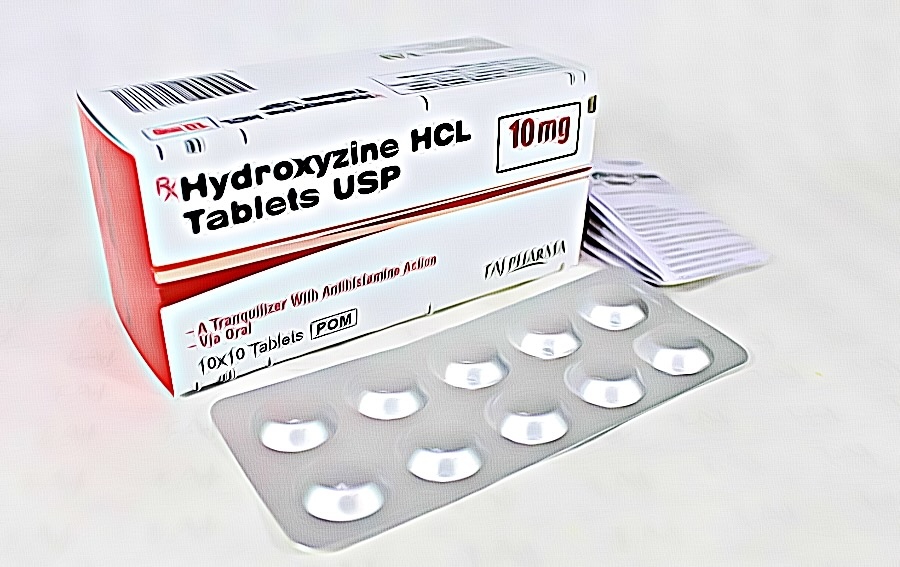First-Gen Antihistamine: Can People Overdose on Hydroxyzine?
Like most people, you probably have some experience with allergies. Whether it’s seasonal allergies or a more specific allergy to a particular food or substance, allergies can be annoying and even downright painful. But while there are a variety of over-the-counter and prescription medications available to help relieve allergy symptoms, sometimes they just don’t seem to work as well as we’d like.
Meanwhile, Hydroxyzine is an antihistamine commonly used to treat allergies, anxiety, and itching. It works by blocking the action of histamine, a substance in the body that is responsible for the symptoms of allergies. One of the great things about hydroxyzine is that it is available in various forms, including tablets, capsules, syrup, and cream. But can people overdose on Hydroxyzine? Here are some ideas.
Can I Overdose on Hydroxyzine?
It is possible to overdose on Hydroxyzine, which can be pretty dangerous. Hydroxyzine overdose can cause serious side effects, including seizures, coma, cardiac arrest, respiratory failure, and death.
If you or someone you know has overdosed on Hydroxyzine, it is essential to seek medical attention immediately. Allergy medications like Hydroxyzine offer quick relief from symptoms. However, overdosing on it comes easy.
Common Symptoms of Hydroxyzine Overdose
Aside from life-threatening symptoms, Hydroxyzine overdose can lead to simpler but dangerous side effects like drowsiness, blurry vision, confusion, dry mouth, nausea, diarrhea, restlessness, agitation, and anxiety.
Hydroxyzine overdose can occur when someone takes more medication than is recommended. Overdose can also occur if someone accidentally or intentionally takes more than one type of medication that contains hydroxyzine.
How Long Do the Symptoms Last?
The symptoms of Hydroxyzine can last for a few hours, depending on how much you have taken. If you have taken a large amount of Hydroxyzine, the symptoms may last for a few days. On average, the side effects can last for at least four hours. Meanwhile, you may need to be hospitalized if you suffer from a severe allergic reaction. However, there are factors to remember in determining how long the symptoms last:
a. Dosage Taken
The severity of the side effects will be determined by the dosage taken. If you take only a tiny amount of Hydroxyzine, the symptoms will be less severe. However, if you have taken a large amount of Hydroxyzine, the symptoms will be more powerful.
b. Age
If you are a child, the symptoms of Hydroxyzine will last for a shorter period than an adult. Children have a higher metabolism rate, which helps them eliminate the medication from their system faster.
c. Liver Function
If you have liver disease, the symptoms of Hydroxyzine will last for a shorter duration because the liver is responsible for metabolizing the medication. A damaged liver takes longer to break down the medicine, resulting in the symptoms of Hydroxyzine lasting longer.
d. Accompanying Medications
If you have liver disease, the symptoms of Hydroxyzine will last for a shorter duration. The liver is responsible for metabolizing the medication. A damaged liver takes longer to break down the drug, resulting in the symptoms of Hydroxyzine lasting longer.
e. Care Received
Getting medical treatment for Hydroxyzine makes the symptoms last shorter on the body. Hydroxyzine is generally safe and well-tolerated. However, if you are considering taking hydroxyzine, talk to your doctor or pharmacist to see if it is the proper medication.

Is Hydroxyzine Overdose Lethal?
The lethal dose of Hydroxyzine is 10 grams. Adults can have a maximum of 600 mg within 24 hours, but children and adolescents can take a maximum of 100 mg per day. Therefore, people taking a dosage above the limit will experience various effects, possibly including death.
Overdosing on Hydroxyzine has a high survivability rate if the patient survives the first 24 hours. However, they may experience complications that can worsen and lead to permanent disability in the future.
a. Pneumonia
Pneumonia is an infection of the lungs. Symptoms of pneumonia include coughing, chest pain, shortness of breath, sweating, and fever. It is a common complication of an overdose of Hydroxyzine.
b. Muscle Damage
Muscle damage is another common complication of an overdose of Hydroxyzine. Muscle damage can lead to muscle weakness, paralysis, and even death. The condition may not need medical assistance, but if it becomes too difficult to manage, it’s best to ask for help.
c. Brain Damage
Brain damage is a rare but severe complication of an overdose of Hydroxyzine. Brain damage can lead to seizures, coma, and even death. If you or someone you know has overdosed on Hydroxyzine, it’s essential to seek medical help immediately.
A few people die from an antihistamine overdose each year, but this number is deficient compared to the overall number of people who take antihistamines. Most of these deaths are due to accidental overdoses.
But there have also been a few cases of people intentionally overdosing on antihistamines. However, death typically occurs when overdosing on the drug leads to various complications that eventually lead to death.
a. Respiratory Distress
One of the most common complications of an antihistamine overdose is respiratory distress. It can occur when the antihistamine slows down the respiratory system, leading to difficulty breathing. In severe cases, this can cause respiratory failure, which can be fatal.
b. Cardiac Arrest
One of the most common complications of an antihistamine overdose is respiratory distress. It can occur when the antihistamine slows down the respiratory system, leading to difficulty breathing. In severe cases, this can cause respiratory failure, which can be fatal.
c. Seizures
Seizures are another common complication of an antihistamine overdose. They can occur when the drug interferes with the electrical signals in the brain. Seizures can be very dangerous and lead to brain damage or even death.
Symptoms of Hydroxyzine Withdrawal
Hydroxyzine withdrawal symptoms can occur when someone suddenly stops taking the drug. Withdrawal symptoms are different from side effects, which occur when the drug is taken as prescribed. Withdrawal symptoms occur when the drug is suddenly stopped or decreased.
The most common hydroxyzine withdrawal symptom is anxiety. Other symptoms include nausea, vomiting, sweating, headaches, dizziness, tremors, and irritability. The best way to avoid hydroxyzine withdrawal symptoms is to taper off the drug under supervision slowly.
Precautions Before Taking Hydroxyzine
It’s best to consult medical professionals before taking Hydroxyzine. It is especially true if you have any medical conditions or are taking other medications, as Hydroxyzine can interact with other drugs.
Even if you are healthy and have no other medications, it’s still a good idea to speak to a doctor or pharmacist before taking Hydroxyzine, as they can advise you on the best way to take the medication and what to expect.
Conclusion
Hydroxyzine works by reducing the activity of certain chemicals in the brain that can contribute to anxiety. It’s available in both short-term and long-term formulations for short-term relief and long-term management of stress.
Hydroxyzine has been around for a long time and has a good track record of being a safe and effective medication. However, like other medications, it can also potentially cause addiction and withdrawal in people taking them.
If you are considering taking hydroxyzine for anxiety, you must talk to your doctor about the potential risks and benefits. Hydroxyzine is generally considered a safe and effective medication, but it is not suitable for everyone.

